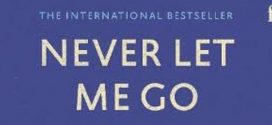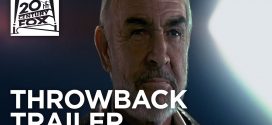When we were young, it was very common to see references in newspapers referring to print media as The Fourth Estate. But, the 21st century brought a radical change in terms of how people communicate with each other and also a whole new way of accessing news, namely the digital media, the internet. Suddenly, you didn’t have to wait for the newspaper in the morning, because you have already seen all the news almost in real-time, as it happens around the world.
| Movie | : | The Fifth Estate |
| Director | : |
Bill Condon
|
| Producer | : | Steve Golin, Brad Dorros, Michael Sugar |
| Based on | : |
Inside WikiLeaks by Daniel Domscheit-Berg
and WikiLeaks by David Leigh & Luke Harding
|
| Screenplay by | : | Josh Singer |
| Music By | : | Songs: Carter Burwell |
| Editor | : | Virginia Katz |
| Cinematography | : | Tobias Schliessler |
| Production Companies | : | DreamWorks Pictures, Reliance Entertainment, Participant Media, Anonymous Content |
| Distributed by | : | Walt Disney Studios Motion Pictures |
| Release Date | : |
September 5, 2013 (TIFF), October 18, 2013 (US), October 25, 2013 (India) |
| Starring | : | Benedict Cumberbatch (Julian Assange), Daniel Brühl (Daniel Domscheit-Berg), Anthony Mackie (Sam Coulson), David Thewlis (Nick Davies), Moritz Bleibtreu (Marcus), Alicia Vikander (Anke Domscheit-Berg), Stanley Tucci (James Boswell), Laura Linney (Sarah Shaw), Carice van Houten (Birgitta Jónsdóttir), Peter Capaldi (Alan Rusbridger), Dan Stevens (Ian Katz), Alexander Beyer (Marcel Rosenbach), Alexander Siddig (Dr. Tarek Haliseh), Philip Bretherton (Bill Keller), Lydia Leonard (Alex Lang), Hera Hilmar (Wikileaks staffer), and others… |
But, newspapers have editors who act as the conscience of the publishing house. The facts are verified, reviewed, validated, approved, censored before they are published. This can hardly be said for the self-published articles on internet. There is sometimes very little difference between a news article here and an opinion of the writer. So, who will act as a sentry or a monitor or a conscience for this rapidly growing ‘Fifth Estate’?
This is the prime question that the 2013 film by Bill Condon focuses on.
The names of Wikileaks and Julian Assange no longer needs an introduction. Their ‘up and down’ ride with popularity has been recorded over last few years by every nation in the world. And not unusually, there have been some splits in Assange’s team with people walking out due to differences in principles over what they are publishing on WikiLeaks.
One of Assange’s main associate during formative years of WikiLeaks was German computer expert Daniel Domscheit-Berg. Daniel left WikiLeaks and published a book called Inside WikiLeaks: My Time with Julian Assange at the World’s Most Dangerous Website (2011). Josh Singer combined this book with WikiLeaks: Inside Julian Assange’s War on Secrecy (2011) by British journalists David Leigh and Luke Harding to write the screenplay for The Fifth Estate.
The film stars “Sherlock” and “Dr. Strange” fame Benedict Cumberbatch as Julian Assange while Daniel Bruhl plays Daniel Domscheit-Berg. “The Danish Girl” fame Alicia Vikander has a small supporting role as Daniel’s girlfriend.
This Is Here In For You
The Plot:
The film starts in 2010 when Daniel meets Assange for the first time in Berlin, where Assange explains the concept of WikiLeaks and emphasizes that the main point of the website is to provide a safe platform to whistle-blowers and protect the anonymity / identity of sources of the data published on this site. Assange starts giving Daniel assignments and their first major breakthrough comes with a whistleblower providing data on illegal activities of a major private Swiss Bank.
As the site starts to gain popularity, Daniel provides money for investment in additional servers and infrastructure for the site. For next three years, the site continues with sensitive data published on topics including Scientology, Sarah Palin’s email account, membership list of British National Party, etc.
As the film progresses though, Assange’s character reveals insecurities, signs of persecution mania, lack of integrity in actions and slowly the relationship between Daniel and his mentor deteriorates, especially over publishing names and addresses of people involved in British National Party that leads to them losing their jobs. We are also shown glimpses of Assange’s childhood including his broken family, and their involvement with an Australian cult.
The breaking point comes with WikiLeaks’ most glorious moment. Chelsea Manning steals a whole lot of data from US security forces and supplies it to WikiLeaks. This contains Afghan and Iraq war longs and 250,000 US diplomatic cables. The first video posted from this lot goes viral and concerns mount over rest of the data.
Assange strikes a deal with The Guardian over publishing rest of the data making it the biggest scoop of the century, but his insistence on publishing everything without editing means that they are blowing cover of thousands of US informers all over the world that will put these people and their families in mortal danger. In Daniel’s opinion this no longer falls under the main principle that was saving anonymity of sources at any cost.
When Daniel realise that Assange has no intention to redact the documents, he proceeds to delete the site and block Assange’s access to the server. The film ends with Assange’s monologue on the events that follow.
Moral of the story is that the Fourth Estate has now created a Fifth Estate and put it on a pedestal. But how long before it will all get out of hand?
Behind the scenes:
Further Info:
Something as sensitive as this movie is bound to get backlash and so it was no wonder when Assange threatened to sue the makers of the film. He described the film as “serious propaganda attack on WikiLeaks and the integrity of its staff“.
Director bill Condon replied with “It may be decades before we understand the full impact of WikiLeaks and how it’s revolutionized the spread of information. So this film won’t claim any long view authority on its subject, or attempt any final judgment. We want to explore the complexities and challenges of transparency in the information age and, we hope, enliven and enrich the conversations WikiLeaks has already provoked.”
Assange also discussed the film with Benedict Cumberbatchwho supports the organisation and said that “No matter how you cut it, he’s done us a massive service, to wake us up to the zombie like way we absorb our news.”
Summary:
While authenticity about the details for such movies are always debatable, let us summarize it in terms of cinematic experience only. It is a good cinematic experience with a few good performances. You can watch it in your free time without much expectations from it, and you will enjoy it.
Did you watch this movie? Which part of the movie you like the best? What is the most effective scene of the movie according to you? Is there anything you want to share about this movie or this article? Do not hesitate, go ahead and leave your comments below. And yes, do not forget to share this article with your friends over various social networks via Twitter, Facebook, Google Plus and others. And yes, you may like to subscribe to our RSS feeds and follow us on various Social networks to get latest updates for the site to land right in your mail box.
 ThinkerViews – Views And Reviews Personal views and reviews for books, magazines, tv serials, movies, websites, technical stuff and more.
ThinkerViews – Views And Reviews Personal views and reviews for books, magazines, tv serials, movies, websites, technical stuff and more.



